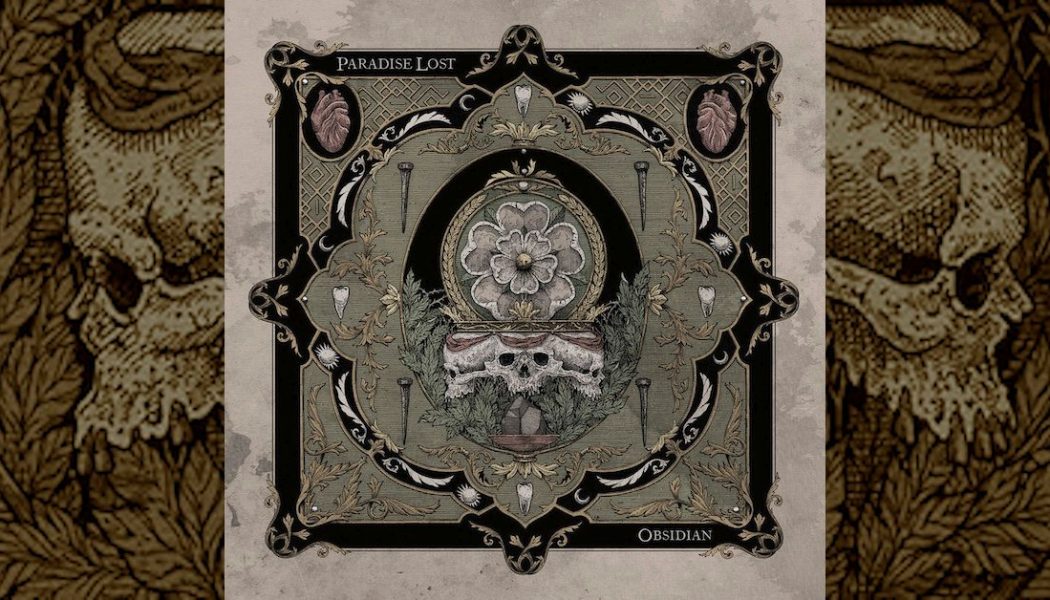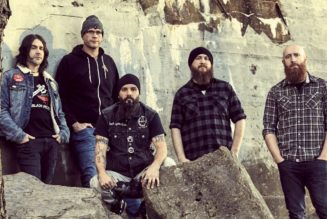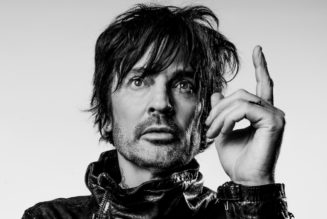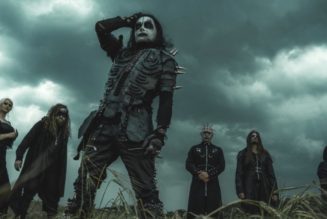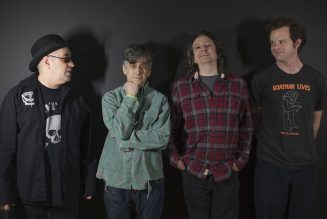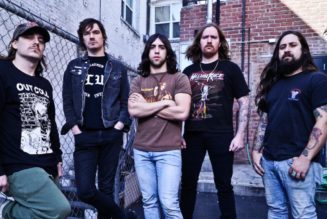
The Lowdown: Paradise Lost innovated goth metal in the late ’80s, and while that style remains has remained popular through the years (see: Type O Negative, Lacuna Coil, more), the pioneering UK act still flies under the mainstream radar in the United States. Part of that has to do with the fact that Paradise Lost has scarcely toured the States for most of their career, although two years ago they embarked on a 30th anniversary headlining tour of North America.
The next step on Paradise Lost’s journey is Obsidian, their 16th studio album. While it might not be musically groundbreaking for the veteran metallers, the LP showcases their various strengths in a nearly flawless run of songs just as sharp and polished as the igneous stone for which it’s named.
The Good: Obsidian caps off a particularly strong three-album run for Paradise Lost. Vocalist Nick Holmes resumed growling 2015’s The Plague Within after close to a decade of only melodic singing, and the addition of drummer Waltteri Väyrynen added heft to its follow-up, 2017’s Medusa. Väyrynen’s dynamic style and Holmes’ growing command of both his angelic and demonic voices make a dynamic impression on Obsidian opener “Darker Thoughts”, one of the album’s finest tunes.
Heaviness isn’t the band’s only mode, though. Paradise Lost spent the turn of the century chasing a sophisticated rock sound — and did pretty well at it, though they shed some fans in the process. For the first time since then, the band has added a little of that Tears for Fears-esque softness back in with great results on the standout “Ending Days.”
No matter the song, Paradise Lost’s greatest strength remains lead guitarist and songwriter Gregor Mackintosh, whose solos focus on immaculate tone, hooky melodies and sustained notes in the vein of Pink Floyd’s David Gilmour. Mackintosh puts memorability first on his priority list, and his fans are richer for it.
The Bad: While Obsidian has few faults, it shares them with most of the band’s back catalog. Paradise Lost have a playbook and they stick to it maybe too strictly: verse-chorus-verse song structures and yell-along choruses (usually just the title of the song) make for a great entrée, and melancholic piano and strings are fine garnish, but the menu could use a side dish of some sort. While on the subject of choruses, while Holmes’ imagery remains memorable it’s seldom evocative. Songs like “Ghosts” and “The Devil Embraced” underline his longstanding issues with Christianity, but don’t really detail any specific complaints. After 30-plus years some more explicit or personal lyrics would be appreciated.
The Verdict: Three albums into their come-to-death-growl-Jesus career phase, Paradise Lost have found an almost ideal balance between grit, atmosphere and songcraft. What Obsidian lacks in lyrical subtlety or song variety, it makes up for with sonic depth and sheer catchiness. While metal fans wage an eternal civil war over whether or not the genre should include pop in it at all, Paradise Lost float above the fray, synthesizing aggression and accessibility in every song. It’s hardly a new trick for these Brits, but that they’ve made it par for the course makes their career all the more remarkable.
Essential Tracks: “Darker Thoughts”, “Fall From Grace”, “Ghosts”, “Ending Days”, “Ravenghast”
